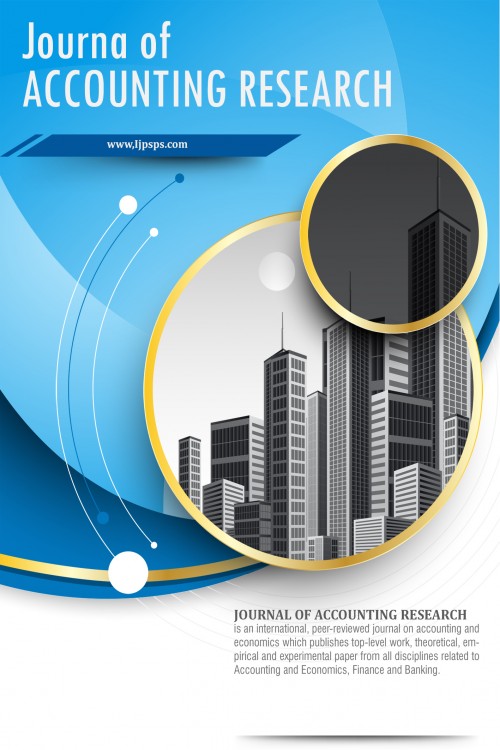
Investigating The Relationship Between Internal Audit, Corporate Governance and Firm Performance
Abstract
The corporate governance of the company attracted more attention following the financial scandals of some companies that undermined confidence in the independence and credibility of the audit firms, as well as the accounting profession and financial markets. In recent decades, especially after the economic downturn and financial crisis in many developed and developing countries, the need to focus on corporate governance has increased. According to a comprehensive report provided by the Organization for Economic Co-operation and Development in 2004, corporate governance is defined as an accepted corporate governance framework. Corporate governance is a key element in the efficiency and economic growth, as well as the strengthening of investor's confidence. To achieve corporate governance, obviously, the company should focus on all aspects of corporate governance, especially the internal audit function. The internal audit examines commitment to ethics, goals, plans, and activities of the organization and it is an important source for the independent auditor, audit committee, the board of directors and senior management. Considering the importance of the subject, the purpose of this paper is to examine the relationship between the existence of internal auditing with corporate governance and corporate performance. In order to achieve the purpose of the research, library method and vector scan tools were used. The results of the research show that internal audit is considered as an important principle in the corporate governance structure. Both the traditional and modern aspects of internal audit are considered as one of the most important internal control elements that assess the decisions made by managers for efficient and effective use of resources and cost-effective observance as well as the improvement of the performance of the organization. Also, internal auditing helps managers manage their responsibilities by assessing internal controls, ensuring the integrity, accuracy of operations, information and financial reports, the adequacy of the internal control system, the elimination of its weaknesses, and the prevention of fraud and misconduct.